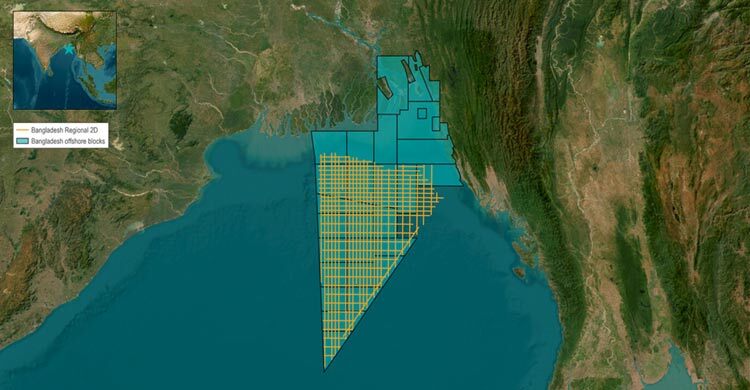Tepid interest from IOCs in offshore oil, gas exploration

Despite significant efforts by Bangladesh to attract foreign investment in offshore oil and gas exploration, the response from international companies has been lukewarm, with only two companies—ExxonMobil and Chevron—responding to Petrobangla's inquiries regarding the lack of tender submissions.
Background: A push for exploration
Bangladesh resolved its maritime boundary disputes with India and Myanmar in 2012 and 2014, respectively. Following this, the government initiated offshore oil and gas exploration by inviting international tenders. However, the effort faced setbacks as seven foreign companies purchased tender documents but failed to submit their bids.
Petrobangla, Bangladesh’s state-owned oil and gas corporation, reached out to these companies in late December to understand their reluctance. After resending the letters due to the holiday season, ExxonMobil responded on January 11, followed by Chevron a few days later. No other companies have replied thus far.
Concerns raised by companies
ExxonMobil, in its response, highlighted several concerns:
The price of block data should be lowered.
Costs for pipeline construction from the block to the station should be excluded.
A Workers Participation Fund (WPPF) should be included in the Production Sharing Contract (PSC).
Additionally, ExxonMobil emphasised the need for a 200–300 km pipeline to transport gas from the exploration block to the station, which was not adequately addressed in Petrobangla's PSC.
Attractive terms, yet limited interest
Petrobangla claims that the 2023 PSC offers more attractive terms than previous contracts. For example:
Gas prices will now fluctuate with international Brent crude prices, offering greater flexibility.
If Brent crude is priced at $90 per barrel, gas will be valued at $9 per thousand cubic feet, a significant shift from fixed pricing in earlier PSCs.
However, during the tender period, oil prices dropped from over $90 to around $70–$72 per barrel, reducing the potential revenue for companies and possibly contributing to their lack of interest.
Political uncertainty and foreign investment
Experts believe the current political climate in Bangladesh is a key factor deterring foreign investment. Dr. Ijaz Hossain, an energy and sustainable development expert, stated, "The companies are hesitant due to the lack of a clear election roadmap, which poses risks. They may wait until the political situation stabilizes." He also noted that companies are likely seeking additional facilities, which Bangladesh may find difficult to provide.
Investigation underway
Petrobangla has formed an investigation committee, led by its Director (Production Sharing Contract), to assess the reasons behind the companies' lack of participation. Former committee head Md. Rafiqul Islam remarked, “The reasons may become clear once all companies respond to the letters.”
Current offshore exploration landscape
The Bay of Bengal is divided into 26 exploration blocks, with 15 in the deep sea and 11 in the shallow sea. Of these, two shallow sea blocks are currently being explored by India's Oil and Natural Gas Corporation (ONGC). Previous attempts by companies like ConocoPhillips, Santos, and Posco Daewoo were abandoned due to unmet demands, leaving ONGC as the sole active explorer.
Eligibility and participation requirements
To participate in the tenders, companies must meet the following criteria:
Produce at least 15,000 barrels of oil per day or 150 million cubic feet of gas per day.
Have prior exploration experience outside their home country.
Purchase multi-dimensional survey data from Petrobangla.
Looking ahead
While international interest remains low, Petrobangla officials remain optimistic, suggesting that reforms and a stable political environment may eventually attract more companies. Until then, Bangladesh’s efforts to tap into its offshore resources will face challenges from both market dynamics and domestic uncertainties.



